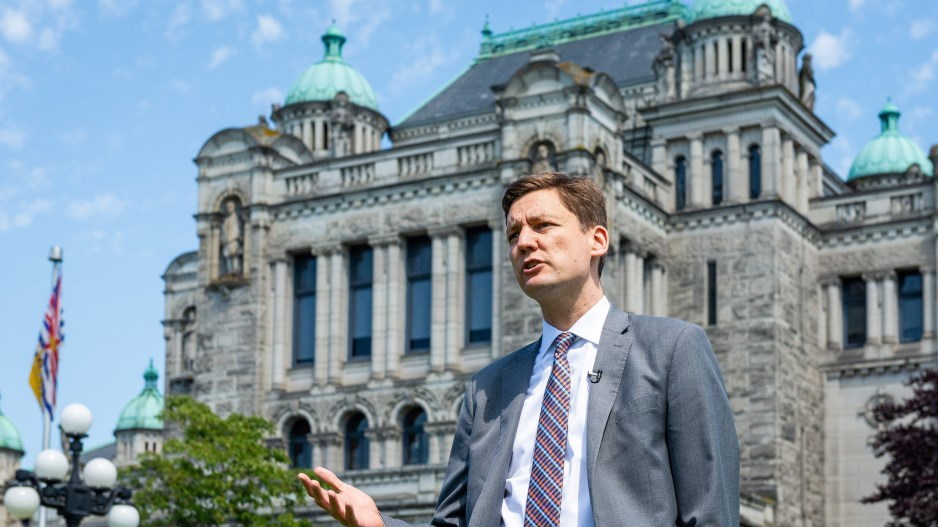It was never a question of “if” the С����Ƶ drug decriminalization experiment was going to undergo a dramatic shift but rather simply a question of “when.”
Last week’s announcement by Premier David Eby that illicit drugs could soon no longer be used in any public space at all had been building for months.
I had been canvassing NDP caucus members in recent weeks and noticed a definite and rising concern among many of them about public drug use, particularly in hospitals. Support for the decriminalization experiment seemed to be rapidly dissipating within government ranks.
Several factors came into play, not the least of which were the two internal health authority memos leaked to the С����Ƶ United caucus, which described procedures and policies regarding the use of illicit drugs in С����Ƶ hospital.
The С����Ƶ United Party has not had a lot to cheer about since it was known as the С����Ƶ Liberals, but the party can boast of playing a critical role in convincing the NDP government to backtrack and ban public drug use.
The Official Opposition party has been hammering the government repeatedly during Question Period about the so-called “unintended consequences” resulting from decriminalization.
The two memos С����Ƶ United got their hands on — apparently from hospital nurses — were proverbial gamechangers.
One internal memo from Northern Health instructed staff to allow illicit drug use in hospital rooms, not to report weapon possession, minimize calls to the RCMP and to allow visitors to bring drugs into the hospital.
Another internal memo, from Island Health, described in detail the rampant drug use in hospital and instructed staff to teach patients suffering from addiction how to inject drugs into intravenous lines.
At the news conference announcing the backtrack the premier was asked what was behind the backtrack and he said one major factor was that court challenge to the law banning public drug use in certain locations would likely go on for another year or so.
But the other significant factor was the use of drugs in hospitals, he said.
“And the second piece was that the quickly escalating situation on the ground, particularly in relation to hospitals and use in restaurants…..made it clear that we were going to have to take a different approach,” Eby told reporters.
There appear to be two other critical factors contributing to the backtracking. One was the decision in Portland, Ore., to completely abandon its own landmark decriminalization policy, the first of its kind in North America.
A more important factor, however, was Vancouver deputy police chief Fiona Wilson’s recent testimony to a House of Commons committee that police felt their hands were tied when it came to policing illicit drug use in public and in hospitals.
Deputy chief Wilson shared the stage with Eby at the backtrack announcement, signaling the police are back on board with the watered-down decriminalization experiment, which still allow for personal possession of small amounts of illicit drugs that now can only be consumed in private residences to recognized shelters and clinics.
So because of a major push from the Official Opposition and the police themselves, the NDP government has acknowledged it had allowed a mistake to happen and righted the ship, at least in the court of public opinion.
Keith Baldrey is chief political reporter for Global С����Ƶ.




